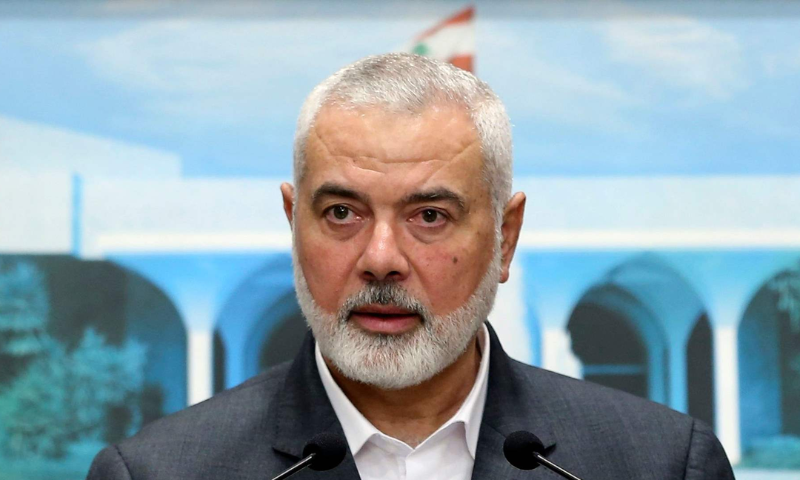CAIRO: Hamas’s response to the latest Gaza ceasefire proposal is consistent with the principles outlined in US President Joe Biden’s truce plan, the Palestinian group’s leader Ismail Haniyeh said in a televised speech on the occasion of Eid Al-Adha on Sunday.
“We are ready for a comprehensive deal which entails a ceasefire, withdrawal of the Israeli forces from the Gaza Strip, the reconstruction of what was destroyed, and a comprehensive swap deal,” Haniyeh affirmed, referring specifically to the exchange of Israeli hostages for Palestinian prisoners.
On May 31, President Biden laid out a “three-phase” Israeli proposal aimed at negotiating a permanent ceasefire in Gaza and phased exchanges of prisoners between Israel and the Palestinian resistance group Hamas.
Egypt and Qatar, alongside the United States, have been mediating truce talks between Hamas and Israel. On June 11, these mediators confirmed receiving a response from Hamas regarding the US plan, although details were not disclosed.
Israel reported that Hamas rejected key elements of the US plan, while a senior Palestinian group leader countered that the requested changes were “not significant.”
Meanwhile, the Israeli military announced a “tactical pause” in its offensive operations in the southern Gaza Strip starting at 8 a.m. (0500 GMT) on Sunday. This pause is intended to facilitate increased deliveries of humanitarian aid, critical amid the severe humanitarian crisis in Gaza.
The military specified that the pause would continue until 7 p.m. (1600 GMT) daily, allowing aid trucks to access the Kerem Shalom crossing, the primary entry point for humanitarian supplies into Gaza.
Gaza has faced dire conditions exacerbated by an eight-month Israeli military offensive, leading to widespread hunger and pushing hundreds of thousands of Palestinians to the brink of famine, according to the UN. Aid deliveries have significantly declined, with the UN receiving only 68 trucks of aid per day from May 6 to June 6, compared to 168 per day in April and far below the 500 trucks needed daily, as estimated by aid groups.
Since early May, the humanitarian situation deteriorated sharply after Israeli ground troops entered Rafah, leading to mass displacement and overcrowding in makeshift camps across southern and central Gaza. Basic amenities such as proper sanitation remain scarce, with open sewage adding to the dire living conditions.
International calls for Israel to alleviate the humanitarian crunch have intensified, emphasizing the urgency of restoring adequate aid flows and addressing the escalating crisis in Gaza.























